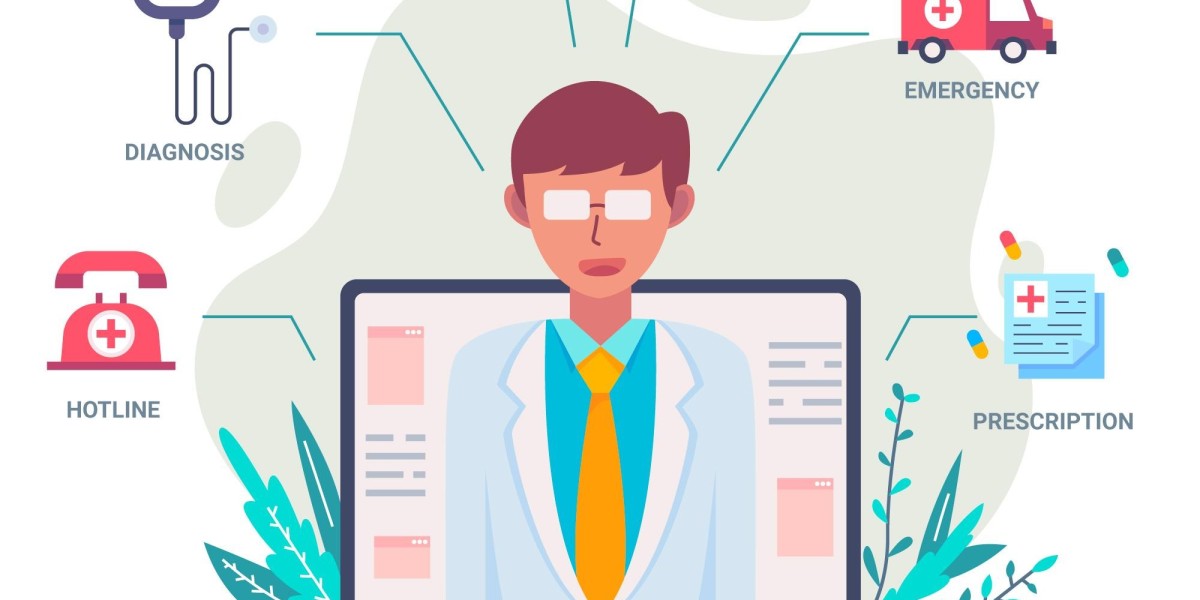Introduction
In today's fast-paced healthcare industry, technology plays a vital role in improving patient care and streamlining medical operations. From managing patient records to enabling remote consultations and optimizing hospital workflows, types of medical software are essential for modern healthcare institutions. These digital solutions enhance accuracy, efficiency, and accessibility, ultimately leading to better healthcare outcomes.
Understanding the Types of Medical Software
The healthcare industry relies on multiple types of medical software to handle various administrative, clinical, and operational tasks. From Electronic Health Records (EHR) systems to medical imaging and telemedicine platforms, these solutions ensure that healthcare providers can deliver efficient and high-quality services. Implementing the right medical software enhances decision-making, reduces errors, and streamlines patient care.
Electronic Health Records (EHR) Software
Electronic Health Records (EHR) software is one of the most commonly used types of medical software in modern healthcare facilities. It helps healthcare providers store, retrieve, and manage patient data in a secure digital format. EHR systems enhance interoperability by allowing different healthcare professionals to access patient records seamlessly.
Partnering with a custom software development company allows healthcare institutions to develop tailored EHR solutions that meet their specific needs. Custom EHR systems offer better integration with existing workflows, ensuring improved efficiency and compliance with industry regulations.
Medical Imaging Software
Medical imaging software plays a crucial role in diagnostics and treatment planning. It allows radiologists and physicians to analyze X-rays, MRIs, CT scans, and ultrasound images with greater precision. These software solutions utilize advanced AI and machine learning algorithms to detect abnormalities that might be missed by the human eye.
Investing in Healthcare IT Consulting services ensures that medical facilities choose the right imaging software that aligns with their operational requirements. IT consultants help optimize software selection, integration, and maintenance, ensuring seamless functionality and compliance with healthcare standards.
Telemedicine Software
Telemedicine software has gained immense popularity, particularly after the COVID-19 pandemic, as it enables remote consultations between patients and healthcare providers. This software facilitates video calls, messaging, and online appointment scheduling, making healthcare services more accessible to patients in remote locations.
With advancements in cloud computing for healthcare, telemedicine platforms have become more scalable, secure, and efficient. Cloud-based telemedicine solutions allow medical professionals to access patient data from anywhere, ensuring seamless virtual care and improved patient engagement.
Practice Management Software
Practice management software helps medical clinics and hospitals streamline their administrative tasks, including appointment scheduling, billing, and patient data management. It reduces manual paperwork and improves operational efficiency by automating repetitive tasks.
By leveraging SaaS Healthcare solutions, medical institutions can access cloud-based practice management software with minimal infrastructure costs. SaaS-based models provide flexibility, automatic updates, and enhanced data security, ensuring that healthcare facilities operate smoothly without downtime.
Clinical Decision Support Systems (CDSS)
Clinical Decision Support Systems (CDSS) are AI-powered tools that assist healthcare professionals in making accurate and data-driven decisions. These systems analyze patient data and provide evidence-based recommendations for diagnosis and treatment.
Hospitals and clinics can benefit from Healthcare Solutions that integrate CDSS into their existing medical workflows. These solutions enhance patient safety, reduce diagnostic errors, and improve treatment outcomes by providing real-time insights and alerts to medical professionals.
Medical Billing Software
Medical billing software simplifies the complex billing and coding processes in healthcare. It ensures accurate invoicing, insurance claims management, and compliance with industry regulations. This software reduces human errors in billing, preventing financial losses for healthcare providers.
Choosing a reliable medical billing software solution ensures that healthcare facilities can handle patient payments, insurance claims, and revenue cycle management efficiently. Integrated billing systems also enhance financial transparency and improve cash flow management.
Hospital Management Systems (HMS)
Hospital Management Systems (HMS) are comprehensive platforms that integrate various hospital operations, from patient registration to inventory management. These systems centralize data management, ensuring seamless coordination between different hospital departments.
The implementation of HMS improves hospital efficiency, enhances patient experience, and reduces operational costs. A well-structured HMS can automate tasks such as staff scheduling, patient admission, and discharge procedures, ensuring smooth hospital operations.
Conclusion
The healthcare industry is rapidly evolving, and the adoption of advanced types of medical software is essential for enhancing efficiency, accuracy, and patient care. Whether it's EHR systems, telemedicine platforms, or AI-driven clinical decision support tools, medical software solutions are transforming how healthcare services are delivered.
By collaborating with a custom software development company, leveraging Healthcare IT Consulting, and utilizing cloud computing for healthcare, medical institutions can optimize their software infrastructure for better patient outcomes. Additionally, SaaS Healthcare and Healthcare Solutions offer scalable and cost-effective ways to implement cutting-edge medical software without extensive infrastructure investments.
Embracing the right types of medical software allows healthcare providers to stay ahead in a technology-driven world. From streamlining administrative workflows to enhancing diagnostics and treatment planning, medical software solutions are reshaping the future of healthcare for the better.



